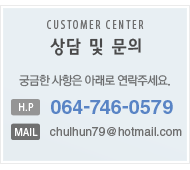Health
1. What are the most popular ways of keeping healthy in your country?
여러분의 나라에서 건강을 지키는 가장 인기 있는 방법이 뭔가요?
How do Koreans tend to keep healthy in comparison with other countries such as Western countries?
How do the elderly and the young stay in shape?
한국인들은 서양과 비교해서 어떻게 건강을 지키는 편인가요? 노인들과 젊은이들은 어떻게 건강을 유지하나요?
2. Do you think people worry more about their health as they get older?
사람들이 나이가 들어가면서 건강에 대해 더 걱정하는 것 같나요?
Do young people have unhealthier habits than the elderly?
If so, what are these?
Why might the elderly need to be more health-conscious than the young?
젊은이들의 습관이 노인들에 비해 건강하지 않은가요?
그렇다면, 젊은이들의 건강하지 않은 습관에는 어떤 것이 있나요?
왜 노인들은 젊은이들에 비해 건강에 신경 써야 하나요?
3. How can children be encouraged to adopt healthy eating habits?
어떻게 하면 아이들이 건강한 식습관을 가질 수 있을까요?
What can parents and schools do to influence the food children eat and cook?
집과 학교에서 아이들이 먹고 조리하는 음식에 어떤 영향을 줄 수 있나요?
4. Could governments do more to promote healthier lifestyle options?
정부가 건강한 라이프 스타일을 장려하기 위해 무엇을 더 할 수 있을까요?
What does the government do to encourage healthy living?
What more could the government do to promote a healthy lifestyle? Consider both exercise and diet.
건강한 생활을 장려하기 위해 정부가 하는 일은 뭔가요?
시민들이 건강한 라이프 스타일을 추구하도록 정부가 할 수 있는 일은 뭔가요?
운동과 식습관에 대한 것도 고려해 보세요.
5. How effective is the healthcare system in your country?
여러분의 나라의 건강관리 방식은 얼마나 효과적인가요?
What is the ideal healthcare system? Does this definition match the Korean healthcare system?
Why/why not?
이상적인 건강관리 방식은 어떤 것인가요? 한국의 건강관리 방식은 그런 이상적인 시스템에 부합하나요?
그렇거나, 그렇지 않다면 이유는 뭔가요?
6. Do you think people will become more or less healthy in the future?
여러분은 사람들이 미래에 더 건강해질 것이라고 생각하나요? 아니면 덜 건강해질 것이라고 생각하나요?
Are people leading healthier lives today compared to the past? Why/why not?
Will these reasons continue to be influential in the future?
과거에 비해 요즘 사람들은 더 건강한 삶을 살아가고 있나요? 이유가 무엇입니까?
이러한 이유가 미래에도 계속 여향을 끼칠 것인가요?
7. What are the differences in healthcare facilities between rural and urban areas?
시골과 도시 지역의 건강관리 시설은 어떤 차이가 있나요?
In terms of facilities and staff, why might urban healthcare be of a higher quality?
Are there any advantages to going to a hospital in the countryside, where there are fewer people?
시설 면에서 볼 때, 왜 도시의 건강관리 시설 질이 더 높을까요?
인구가 적은 시골에서 병원에 가는 게 더 좋은 점도 있나요?
8. Do you think it is dangerous to take too much medicine?
너무 많은 약을 복용하게 되면 위험한가요?
Are there any disadvantages to taking medicine when you have light illnesses such as colds and headaches? What happens if people take too much medicine at the same time?
감기나 두통처럼 가벼운 증상에 약을 복용하는 것에 단점이 있나요?
한 번에 너무 많은 양의 약을 먹으면 어떻게 되나요?
9. Why do you think some people continue bad habits when they know that they are damaging
their health?
건강에 악영향을 준다는 것을 알면서도 나쁜 습관을 고치지 않는 사람들은 왜 그런 걸까요?
Think of some specific examples of unhealthy habits. Why do people continue with these?
Is it related to mental well-being or psychology?
건강하지 않은 습관에 대한 구체적인 예를 떠올려 보세요. 왜 어떤 사람들은 나쁜 습관을 고치지 않을까요?
정신적 건강이나 심리와 관련 있나요?
10. Do you think people have become more health conscious in recent years?
여러분은 최근 사람들이 건강을 의식하고 있다고 생각하나요?
more obsessed with health these days than in the past? Why is this, and how can we see this in society?
과거에 비해 건강에 집착하나요? 왜 그런가요, 그리고 이 현상이 사회에서 어떤 모습으로 보이나요?
11. Are you satisfied with the current medical service in Korea?
여러분은 한국의 의료서비스에 만족하나요?
Think of your ideas to question five. If there are any disadvantages, how might these be changed?
5번 질문에서 생각했던 것들을 떠올려 보세요. 단점이 있다면 어떻게 달라질 수 있을까요?
12. What do you think is the future of the healthcare system?
미래의 건강관리시스템은 어떻게 될 것 같은가요?
How might the healthcare system change in the future?
Think about government support for healthcare and the economy.
미래에 건강 관리 시스템은 어떻게 달라질까요?
건강 관리와 경제에 대한 정부적 차원의 지원에 대해 생각해 보세요.
< Sample answer >
1. What are the most popular ways of keeping healthy in your country?
OK… In my opinion, there are plenty of popular ways. Korea’s quite a mountainous country, so hiking is quite common, especially amongst older people. Also… more and more people are joining gyms near their workplaces and power-walking on treadmills. On top of that… supplements or medicinal herbs are fairly popular, like ginseng or vitamins. So those are probably the most widespread ways, I think.
2. Do you think people worry more about their health as they get older?
Right… I’d definitely say so, yeah. Young people often don’t consider the harmful effects of their lifestyle on their health, like eating junk food, leading a sedentary lifestyle, binge-drinking, stuff like that. But… when you get older, you get weaker, so you need to be more health-conscious. Like… you need to think more carefully about eating healthily and drinking less, for instance. So I’d have to say people often do become more concerned about their health, yeah.
3. How can children be encouraged to adopt healthy eating habits?
Um… I think schools and parents are quite influential for kids so they could take action somehow… I mean, health education could be made a compulsory part of the curriculum, and sports classes could be made obligatory, too. And… when it comes to parents… They could play sports with their children and serve them healthy dishes so that they get a balanced diet. So those are a few measures, I suppose.
4. Could governments do more to promote healthier lifestyle options?
Well… Actually I reckon the government already does its bit to a certain extent. I mean, there are lots of communal exercise areas in Korea to encourage people to exercise, especially in the mountains. That said… I guess the government could impose heavy taxes on junk food or unhealthy food, because at the moment it’s quite cheap, and organic or healthy food could be made more affordable instead. So the government could do a little more.
5. How effective is the healthcare system in your country?
Well, overall, I think it’s quite effective. I mean, treatments are fairly affordable, especially compared to somewhere like the US, so there’s almost universal access to healthcare. Some people still go private, though, because they believe the quality of private medical care is higher and they have to wait less before they can be seen by the doctor. But generally, I think the Korean healthcare system is very efficient.
6. Do you think people will become more or less healthy in the future?
Um… I actually think people will be healthier. I mean, in the last few decades lifestyles have become less healthy. People have more hectic lives so they have less time to exercise, and it’s harder to find food that doesn’t contain lots of harmful additives. But recently the public has become more aware of the adverse effects of this lifestyle, and they’re taking measures to combat this, like joining gyms and eating a balanced diet. So actually, in the future I reckon individuals will be healthier.
7. What are the differences in healthcare facilities between rural and urban areas?
Well… In general, healthcare facilities are better in cities than in the countryside. I mean… infrastructure tends to be more developed, so the hospitals are bigger, have higher quality equipment, and attract more experienced doctors. You could say healthcare is more accessible, too, I mean it’s really easy to find a hospital close by. But… I suppose rural areas are less crowded than urban areas, so maybe you have to wait for less time than in cities. So those are a few differences.
8. Do you think it is dangerous to take too much medicine?
OK… I’d say it depends on the medicine, but in general, yeah, it’s harmful. First of all, if you exceed the recommended dose, I mean if you take an overdose, there could be severe consequences for your health, maybe even fatal. On top of that… you might actually become more vulnerable to diseases. For instance, doctors are recommending that people don’t take antibiotics apart from when they really need to, because many viruses are becoming immune to medicine. So overall, it’s dangerous, yes.
9. Why do you think some people continue bad habits when they know that they are damaging their health?
OK… Well I guess there are a few reasons… Maybe people aren’t aware of exactly how damaging their habits are. I mean, 50 years ago, people knew smoking was unhealthy but not extremely unhealthy, so they kept smoking. And… another reason might be that people get very stressed, so they indulge in guilty pleasures to unwind. In my case, for instance, ice cream is my comfort food, even though I know it’s harmful for my health if I eat too much. So there are several factors I suppose.
10. Do you think people have become more health conscious in recent years?
Sure. I mean, through health education at school and advertising campaigns in the media, people are becoming aware of just how unhealthy modern life has become… For example, how fattening certain foods are… And as a result, people are taking steps to change their habits. Like… although obesity is still a serious issue, people are exercising more and more, and trying to have a more balanced diet. So yeah, I think people have become more health conscious – but there’s still a long way to go before we’re all fit as a fiddle!
11. Are you satisfied with the current medical service in Korea?
Yeah, I’d say so. Especially compared with a country like the US, Korea’s healthcare system is very affordable, so almost everyone has access to it when they need medical attention. Prescription charges are also very cheap. You’re also entitled to a free checkup every year. So overall, I’m very satisfied, yeah.
12. What do you think is the future of the healthcare system?
I’m not so sure. I mean, for instance, with the UK, healthcare has been free for a long time, but now the government is withdrawing funding because of the economic crisis… There’s also the issue of overpopulation, which places a strain on healthcare facilities since they can’t support everyone… So in the future, if we face another economic recession, or if overpopulation intensifies, the future of the healthcare system might be bleak.
- 제주도 유일한 off-line 아이엘츠 학원-
- 주소 : 제주특별자치도 제주시 과원북4길 33 3층 그리피스잉글리쉬어학원
- TEL : 064-746-0579ㅣE-mail : chulhun79@hotmail.comㅣ대표자 : 허철훈 | 사업자등록번호 : 758-95-00099
- Copyright © 2016 그리피스잉글리쉬어학원. All rights reserved.




